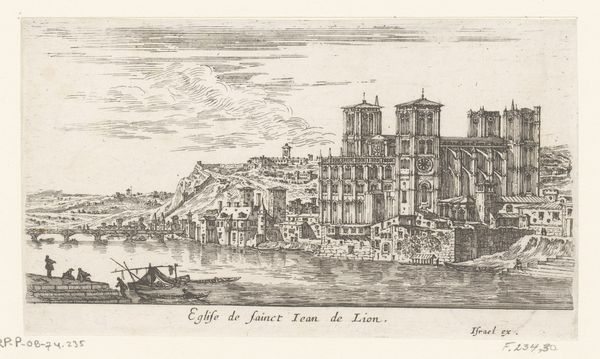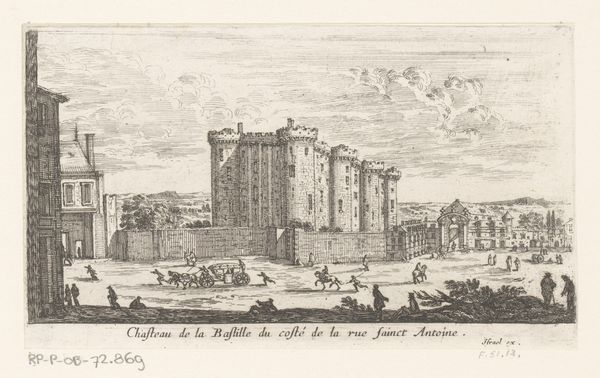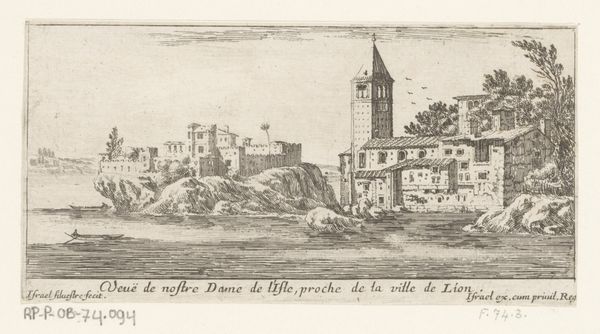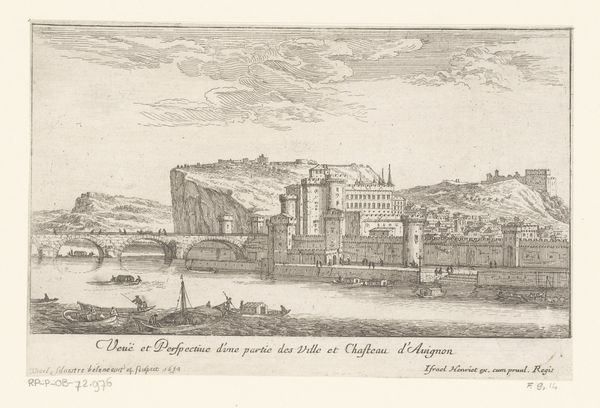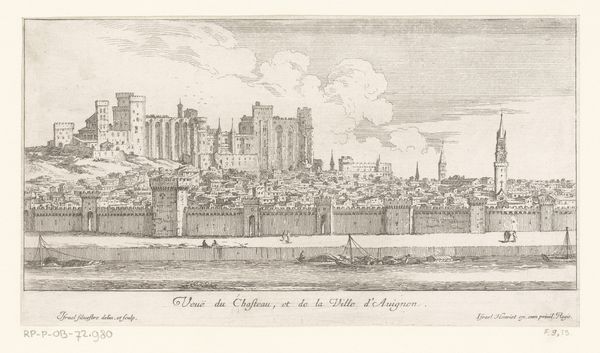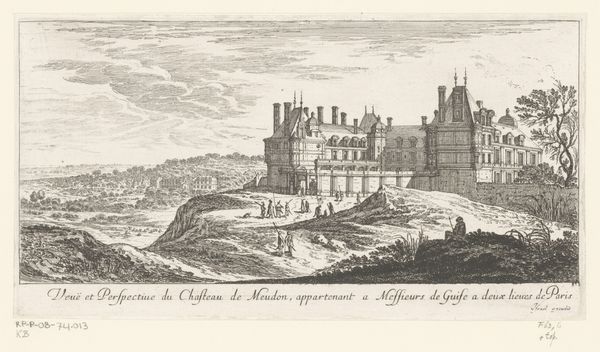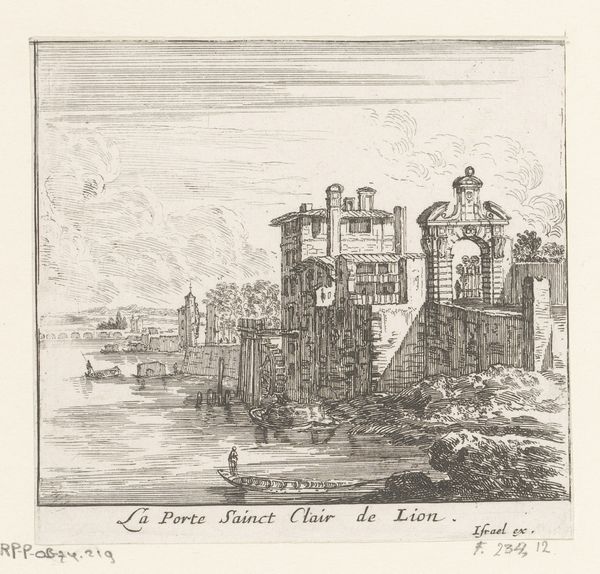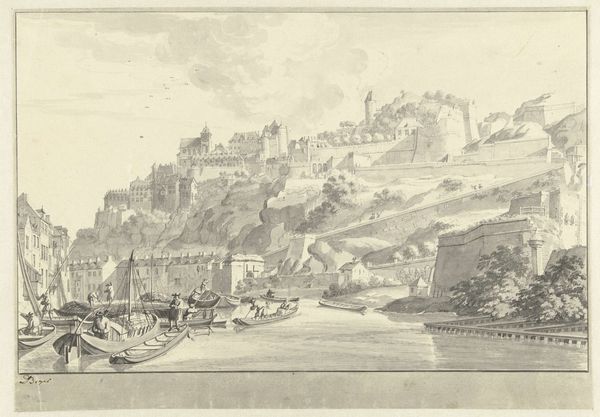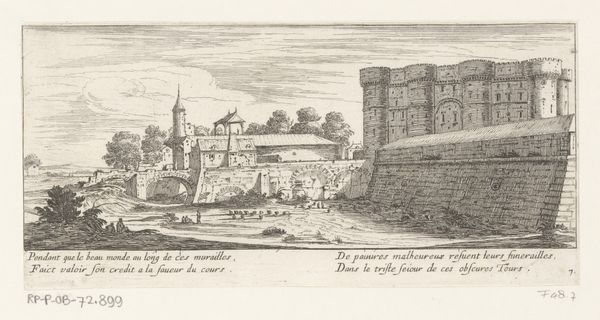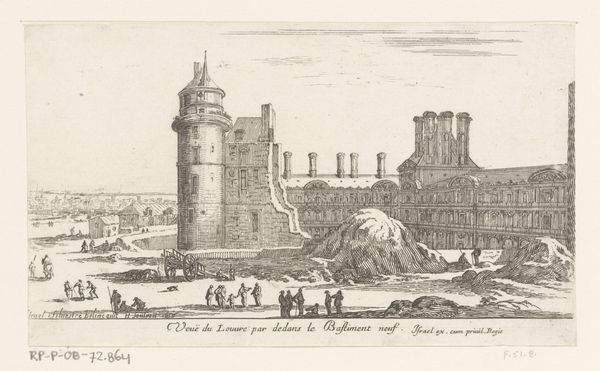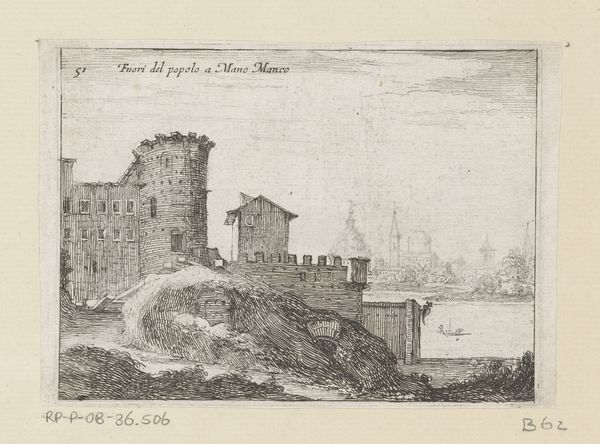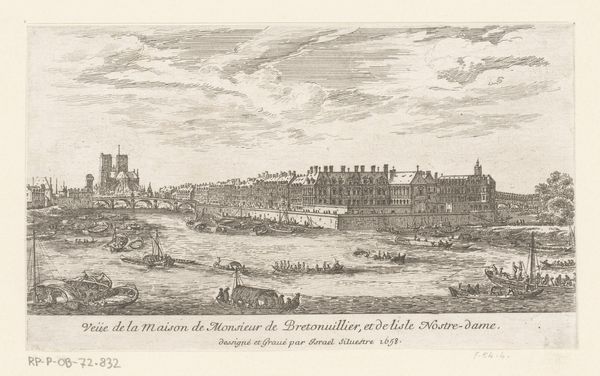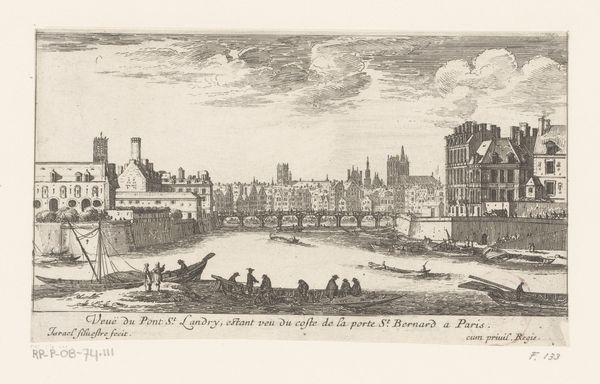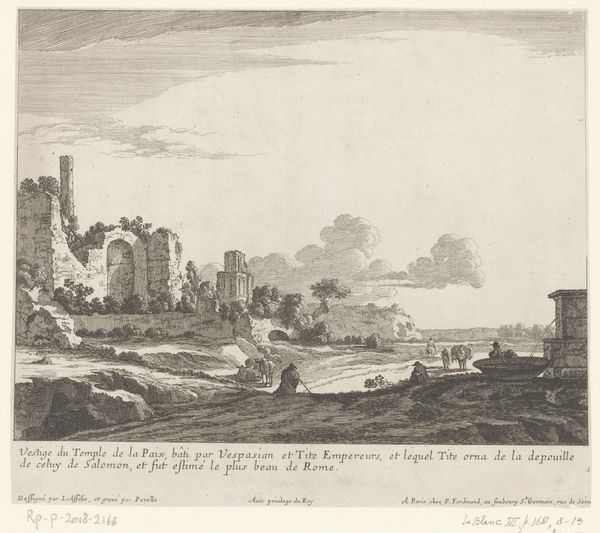
Dimensions: height 99 mm, width 163 mm
Copyright: Rijks Museum: Open Domain
This print of the Pont Saint-Michel in Paris was made by Israel Silvestre in the 17th century, using the process of etching. This involved covering a copper plate with wax, then drawing through the wax with a sharp needle to expose the metal. The plate was then immersed in acid, which bit into the exposed lines. The result is a network of fine lines, which define the buildings, the bridge, and the figures on the river. Look closely, and you can see how Silvestre varied the density of the lines to create tonal effects, suggesting the play of light on the water and the solidity of the architecture. Prints like this were a key technology in early modern Europe. They made images widely available, fueling the circulation of ideas and influencing taste. It is through close attention to the materials and processes that we can understand the social and cultural significance of works like this. They are not just images, but also products of a particular time and place.
Comments
No comments
Be the first to comment and join the conversation on the ultimate creative platform.
